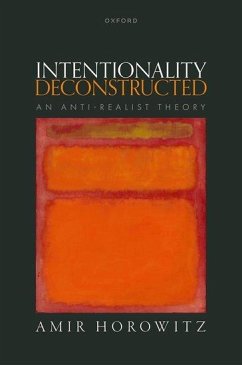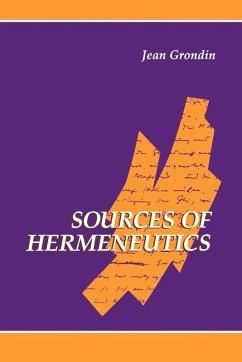
The Sources of Intentionality
Versandkostenfrei!
Versandfertig in 1-2 Wochen
54,99 €
inkl. MwSt.

PAYBACK Punkte
27 °P sammeln!
What do thoughts, hopes, paintings, words, desires, photographs, traffic signs, and perceptions have in common? They are all about something, are directed, are contentful - in a way chairs and trees, for example, are not. This book inquires into the source of this power of directedness that some items exhibit while others do not. An approach to this issue prevalent in the philosophy of the past half-century seeks to explain the power of directedness in terms of certain items' ability to reliably track things in their environment. A very different approach, with a venerable history and enjoying...
What do thoughts, hopes, paintings, words, desires, photographs, traffic signs, and perceptions have in common? They are all about something, are directed, are contentful - in a way chairs and trees, for example, are not. This book inquires into the source of this power of directedness that some items exhibit while others do not. An approach to this issue prevalent in the philosophy of the past half-century seeks to explain the power of directedness in terms of certain items' ability to reliably track things in their environment. A very different approach, with a venerable history and enjoying a recent resurgence, seeks to explain the power of directedness rather in terms of an intrinsic ability of conscious experience to direct itself. This book attempts a synthesis of both approaches, developing an account of the sources of such directedness that grounds it both in reliable tracking and in conscious experience.














